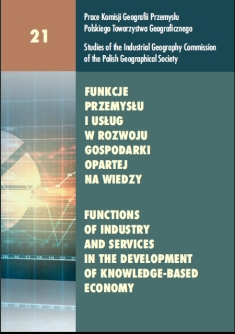Realization of Innovative Services on the Example of the Implementation of the Project Management System
DOI:
https://doi.org/10.24917/20801653.21.23Keywords:
organizational innovations, project management, implementation services, human capital, knowledge-based economyAbstract
The article presents the issues of innovation, providing an example of the implementation of the project management system. Aspects related to this issue were brought to the external context, i.e., the development of a knowledge-based economy. Its significant impact - resulting in pressure on inno environment, companies must be increasingly involved in the implementation of organizational innovations. One of the examples of such activities is an execution of project orientation. This type of change introduces new conditions of work through the use of comprehensive solutions for: organizational structure, HR management techniques or techniques of planning and controlling tasks. Project oriented organization is more flexible, effective and efficient. In addition, it meets the needs of customers and other stakeholders better, which affects positively the ability to compete. In Poland in many industries the implementation of project orientation can be still treated as innovation on the industry sector scale, affecting the increase of the competitive potential. Along with the spread of this type of solutions, the level of innovation falls; however, for entrepreneurships such implementation should be treated as a radical change, which is to meet the criteria of innovation in accordance with the approach adopted in the Oslo manual. It seems that the implementation of a project management system can still be treated as a highly innovative, especially in the relation to the Polish research and development institutions, among others.
Downloads
Metrics
References
Dałkowski, B., Staśko, L., Zalewski, M. (red.). (2009). Polskie Wytyczne Kompetencji IPMA. Gdańsk: Stowarzyszenie Project Management Polska.
i (2010). Ewolucja sektora usług w Polsce w latach 1995–2008. Warszawa.
Frame, J.D. (2001). Zarządzanie projektami w organizacjach. Warszawa: WIG-PRESS.
Francik, A. (2003). Sterowanie procesami innowacyjnymi w organizacji. Kraków: Wydawnictwo AE w Krakowie.
Kisielnicki, J. i in. (red.) (2008). Zarządzanie projektami inwestycyjnymi – aktualne problemy i metody. Gdańsk: Stowarzyszenie Project Management Polska.
Kisielnicki, J. (red.) (2009). Project Management w czasach kryzysu. Gdańsk: Stowarzyszenie Project Management Polska.
Lewis, J.P. (2005). Podstawy zarządzania projektami. Gliwice: Helion.
Lock, D. (2009). Zarządzanie projektami. Warszawa: PWE.
Matusiak, K.B. (red.) (2011). Innowacje i transfer technologii. Warszawa: PARP.
Niedbała, B. (2008). Controlling w przedsiębiorstwie zarządzanym przez projekty. Kraków: Wolters Kluwer.
Project Management Institute (2008). PMBok Guide 4th Edition. USA.
OECD/European Communites (2008). Podręcznik Oslo. Warszawa.
TSO (2010). PRINCE2TM – Skuteczne zarządzania projektami. GB.
Urbanowska-Sojkin, E., Banaszyk, P., Witczak, H. (2004). Zarządzanie strategiczne przedsiębiorstwem. Warszawa: PWE.
Downloads
Published
How to Cite
Issue
Section
License
Articles are published under the terms of the Creative Commons License (CC BY-ND 4.0; Attribution– NoDerivs).

